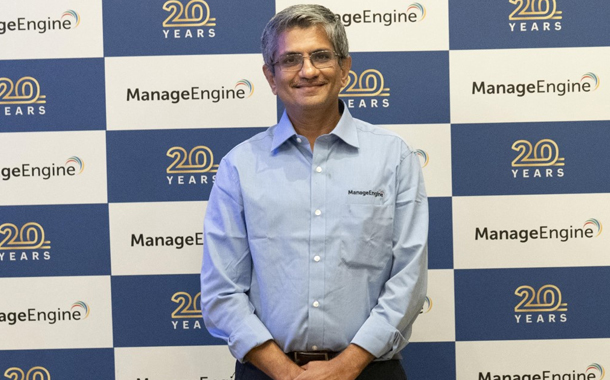ManageEngine has released the findings of its global study “IT at Work: 2022 and Beyond.” Encompassing well over 3,300 top decision-makers across IT and other key business functions, the global study covered business organisations spanning across 18 countries, including India.
The study examined the post-lockdown democratisation and empowerment of IT functions across organisations, the adoption of relevant IT skills across departments, changes in the job-related perceptions of IT decision-makers (ITDMs) and business decision-makers, the current significance of AI and ML to IT security and collaboration between teams as a result of the hybrid work culture. In addition to analysing the marked post-lockdown shift towards IT democratisation and empowerment as well as the business-oriented benefits these entail, the study also observed a notable rise in IT knowledge amongst non-IT employees.
Speaking to newsmen, Shailesh Davey, Co-Founder and Vice President of Engineering at Zoho Corp, said, “Our primary aim with this study was to shed light on the current state of ITDMs and the need for IT democratisation and empowerment for a well-knit organisation today. The swift acceleration of digitalisation catalysed by the pandemic has, without a doubt, made the role that IT plays in enterprises more vital than ever. The findings of the study also demonstrate how the involvement of ITDMs in implementing business decisions can boost organisational performance as a whole.”
Collaboration Between IT and Non-IT Teams: A Must for Hybrid Work
The key findings of the survey stress on smooth collaboration between IT and non-IT departments. Implementing a flexible or remote work culture has become a new norm for organisations. This requires smooth collaboration between IT and non-IT departments.
The survey found that 91% of business and technology leaders in India believe that collaboration between IT and other lines of business has increased in the past two years. In addition, 76% of India’s ITDMs feel they were adequately consulted by their organisations when implementing flexible work models, 12% more than the global average (64%).
IT Democratisation on the Roll
The ManageEngine study found that 53% of Indian organisations have successfully decentralised their IT structures. And this has had a positive effect on non-IT departments, with 68% of non-IT employees being more knowledgeable about IT than they were before 2020. Other than that, nearly 67% of all Indian respondents cited innovation as IT decentralisation’s biggest benefit (versus 57% globally), and 69% cited maintaining IT security as the biggest challenge (versus 56% globally).
AI and ML: Crucial Contributors to Strengthening IT Security Frameworks
The survey also sheds light on what the business leaders are thinking about the increasingly uncertain security landscape. Of all the surveyed ITDMs, 85% agree that organisations’ existing security landscapes need to change to ensure protection against cyberattacks. Nearly all ITDMs (91%) believe that organisations can strengthen their IT security frameworks by continuing to invest in technologies like AI and ML.
The Future of the IT Workforce
The study gives a fresh insight into the future of the IT Workforce. Of all the ITDMs studied in India, 53% are actively looking for a new job, versus 48% globally. Fifty-two percent of India’s ITDMs feel less loyal to their employers than they did two years ago, versus a global average of 49%. Similarly, sixty-seven percent of India’s ITDMs are more willing to make a risky career move than they were two years ago, versus a global average of 65%. Despite all talks of massive digitalisations, the survey found 82% of India’s ITDMs feel that their organisations have not supported them in the last two years (versus 70% globally), which in turn has led to a decrease in employee loyalty.


